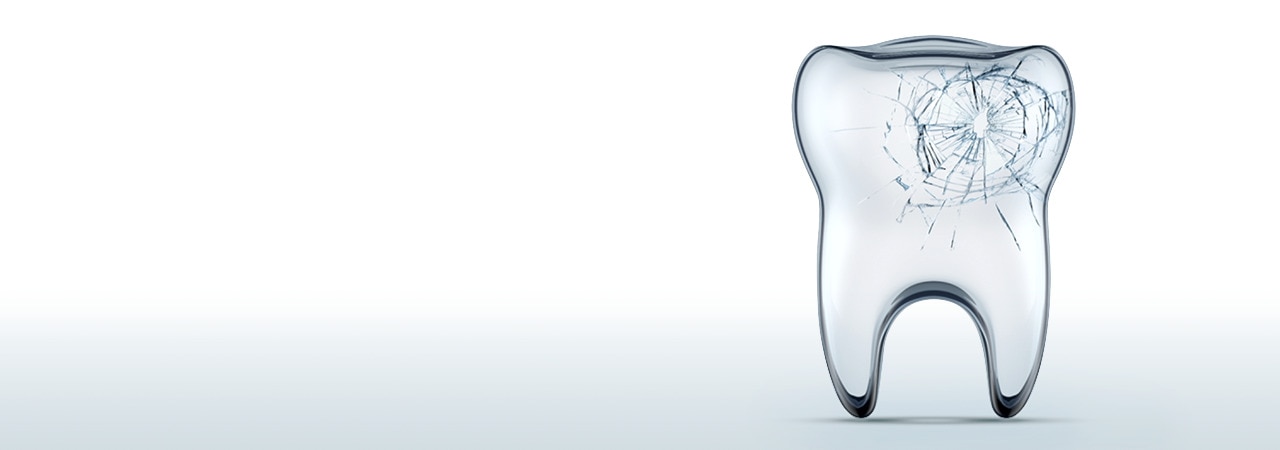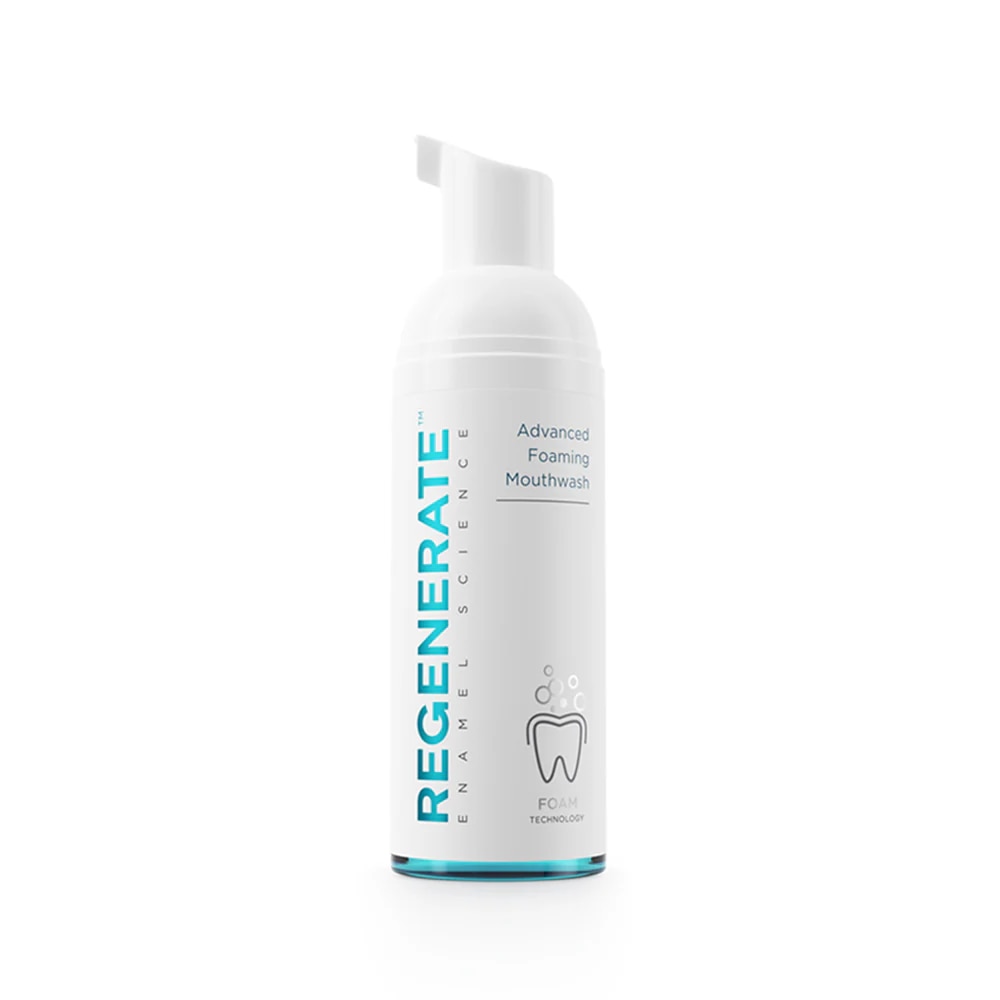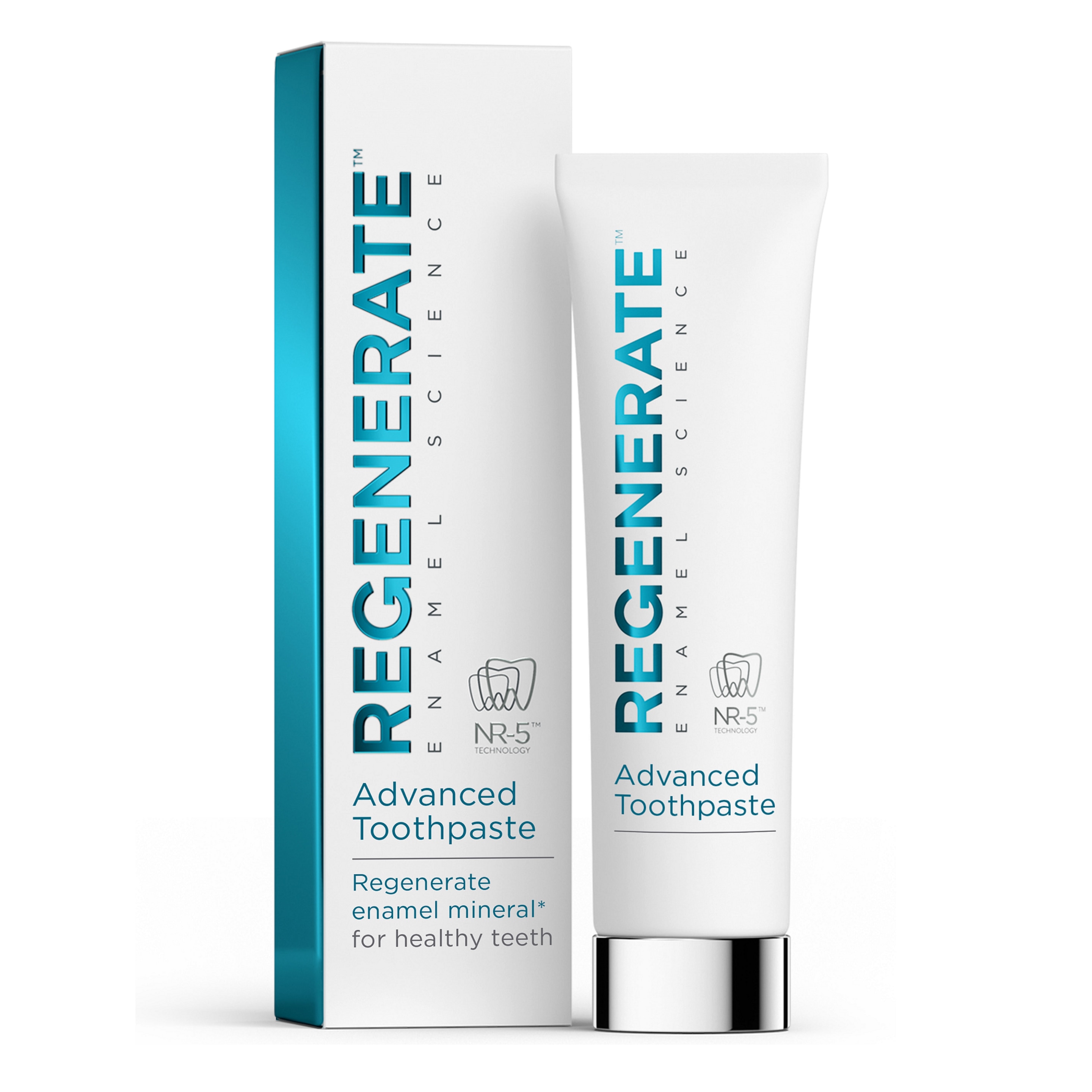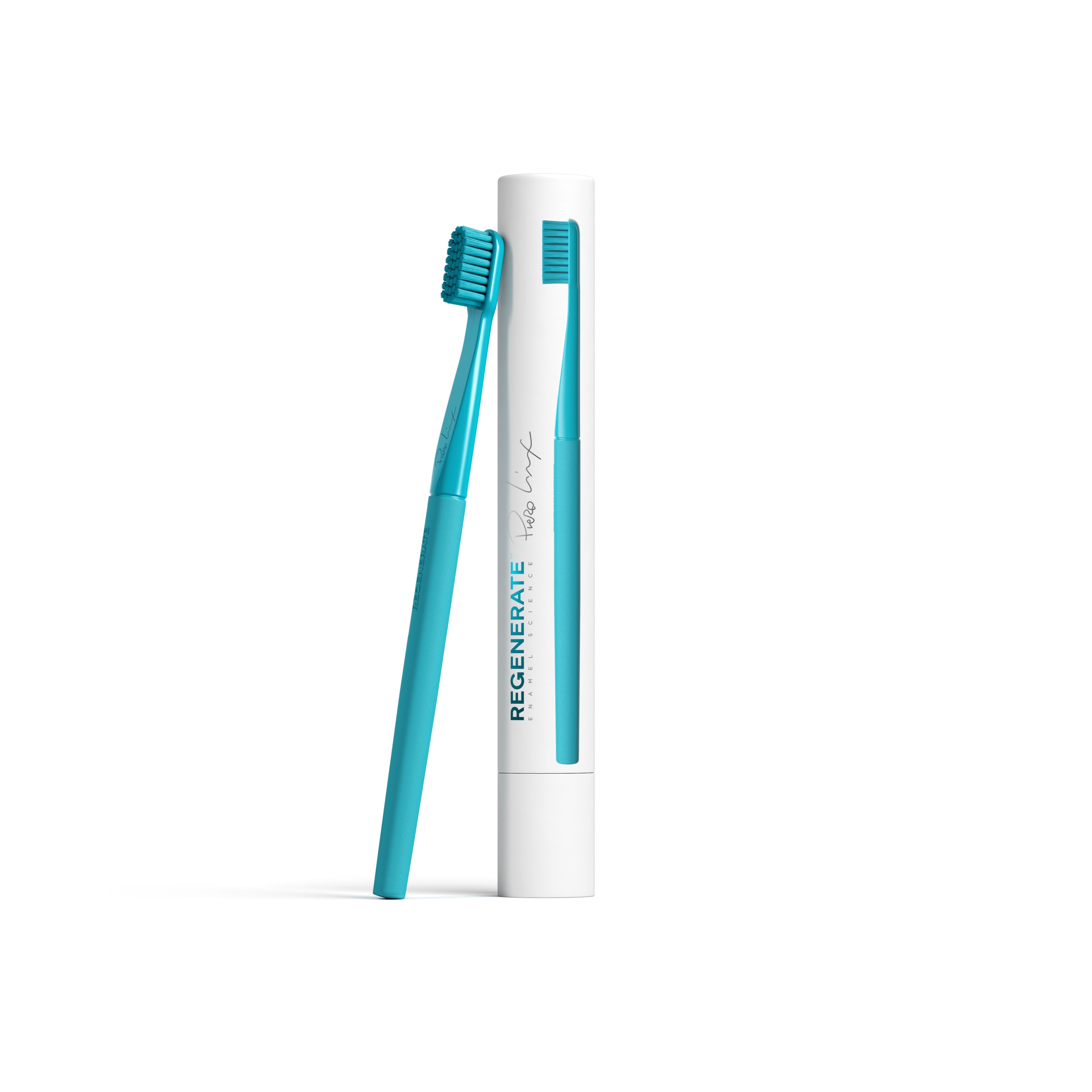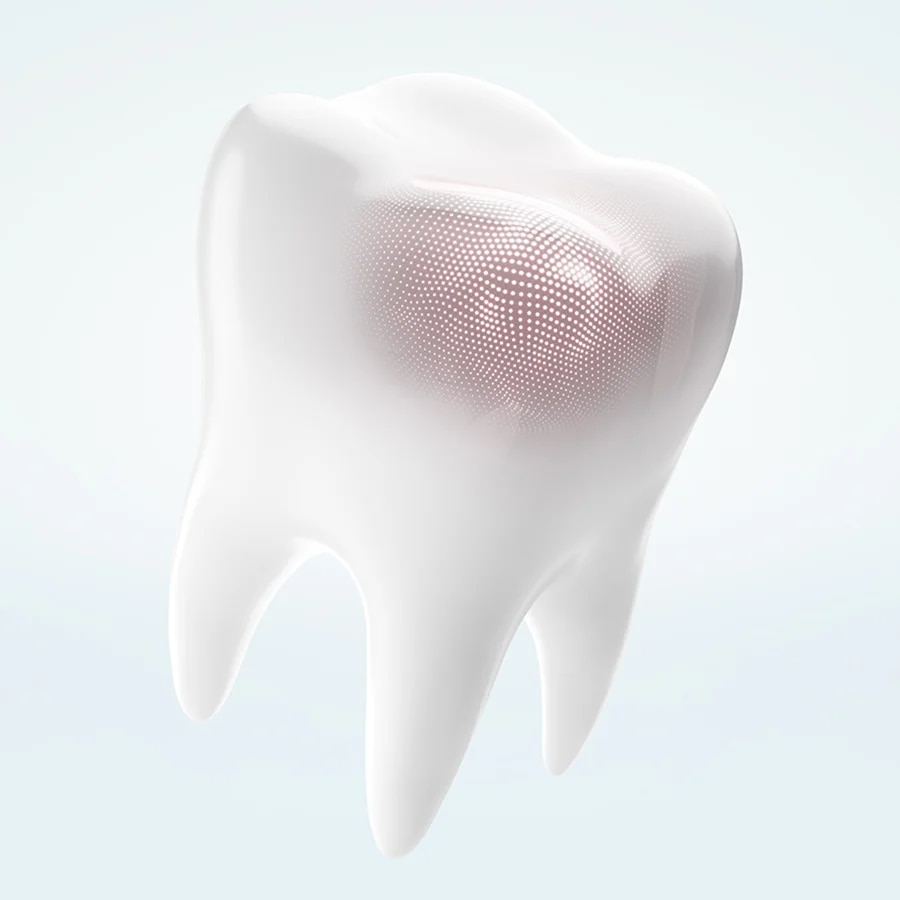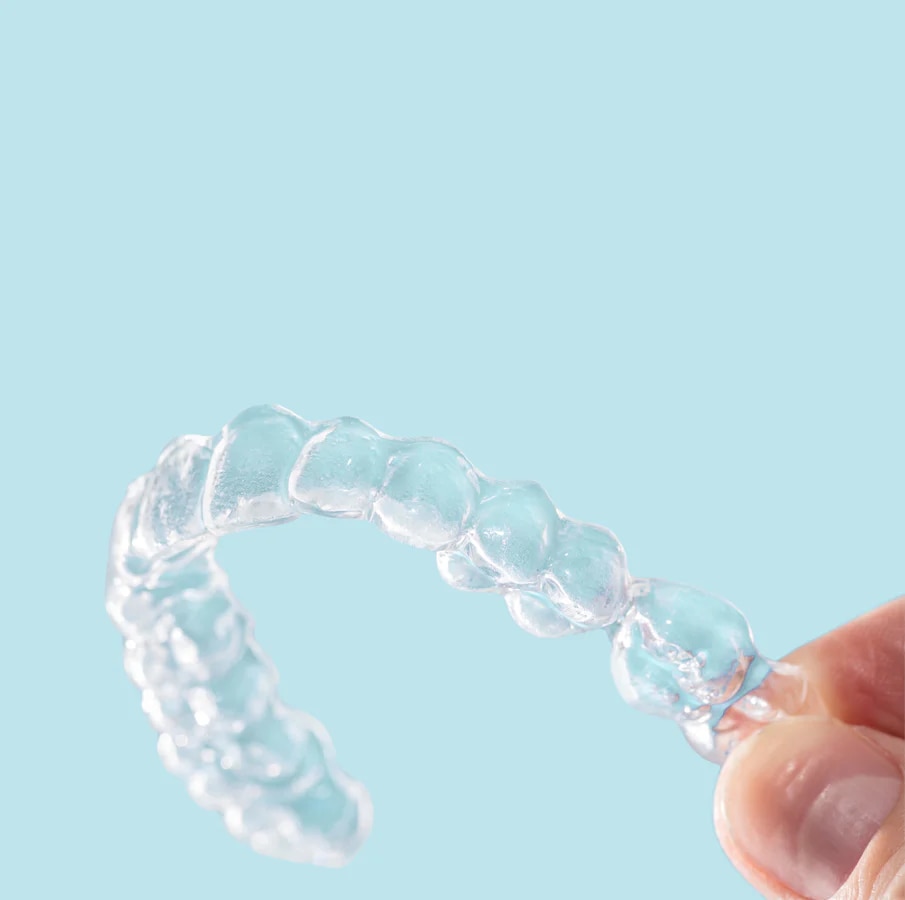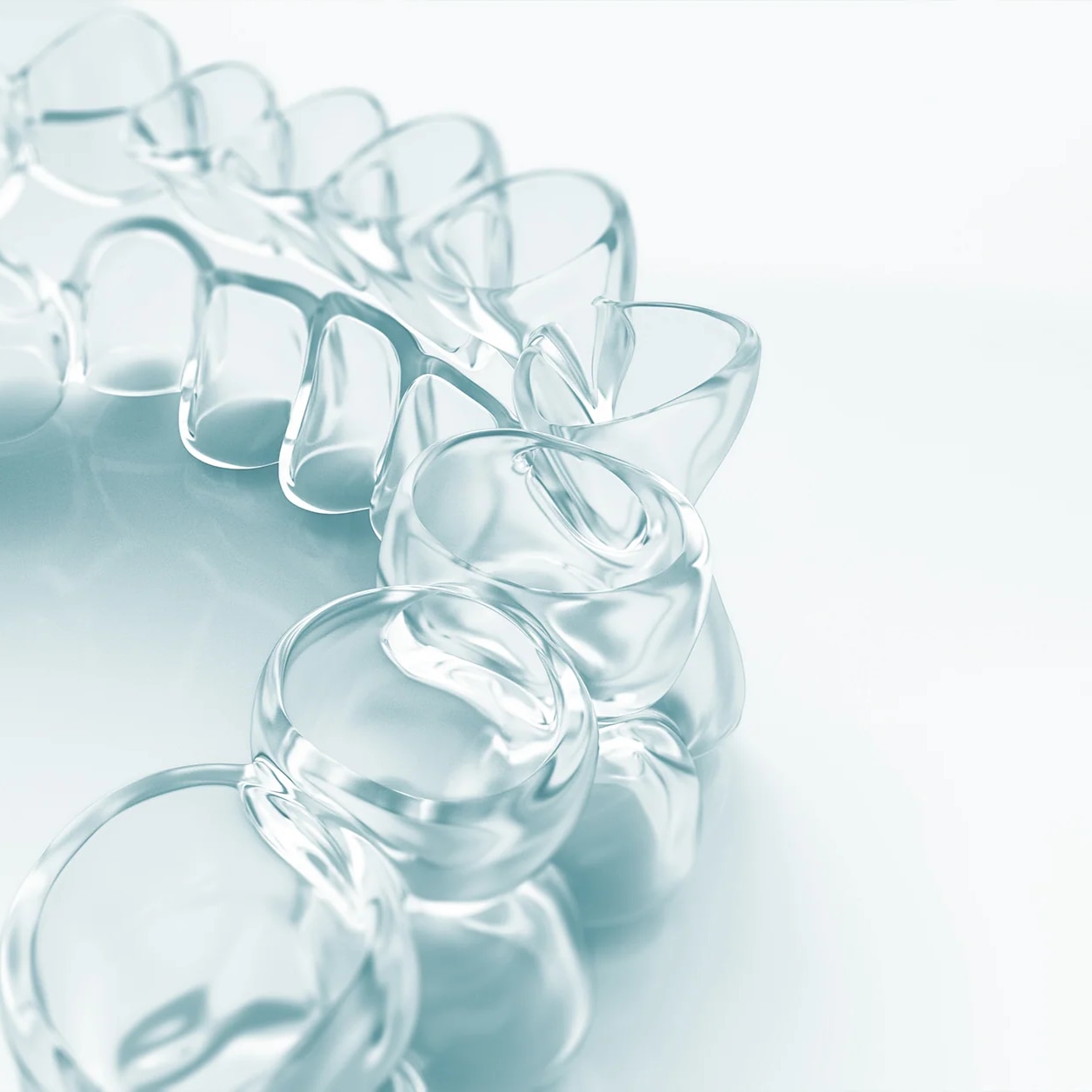Chipping a tooth is an issue you’ll want to deal with quickly, especially if you have a noticeably chipped front tooth. This guide covers everything you need to know if you have a chipped tooth: what to do, approaches your dentist may take for how to fix a chipped tooth and how to avoid it happening again. While this guide is designed to help you in the instance of a chipped or cracked tooth, it is always important to consult a dentist.
Chipped, cracked or broken tooth… what are the differences?
The differences between a chipped tooth and a cracked tooth are explained below, but it is always important to seek professional advice no matter what your situation:
- Chipped tooth: Normally, the chip starts on the edge of the tooth and works its way in. When you chip a tooth, it’s possible not to feel pain at all. However, if the chip is large enough to expose the yellow dentine inside the tooth, it’s more likely to be painful.
- Cracked tooth: Unlike a chipped tooth, a cracked tooth typically starts close to the gums, rather than at the edge of your tooth. A cracked tooth can also damage the entire tooth down to the root, and so pain is more common and severe.
- Broken tooth: The term ‘broken tooth’ covers everything from a chip in your enamel to complete breakage. Breaking a tooth can often be painful, but luckily can be easily fixed.
Chipped tooth causes
There are a variety of reasons that teeth crack, and knowing the causes may help to prevent damage:
- Teeth grinding.
- Chewing or biting hard foods.
- Damaged enamel: look out for signs of enamel erosion, such as transparency or heightened sensitivity.
- Cavities.
- Sporting or accidental injury.
- Age: those who are over 50 are more at risk of cracking or chipping a tooth.

What are the symptoms of a chipped tooth?
You will often notice if you chip a tooth as it can be a painful experience. However, if you have a slightly chipped tooth or a hairline fracture, it may not be as obvious. If you’re not sure, symptoms of a chipped tooth include¹:
- Tooth pain: A chipped tooth can cause pain as the nerves are exposed from the damaged enamel. You may also experience pain when biting down, particularly if the chip is near to the nerves of the tooth.
- Increased sensitivity: A chipped tooth can expose the nerves of your tooth, increasing sensitivity, particularly to hot and cold food and drink.
- Tongue irritation: If you have a chipped tooth, you may experience tongue irritation at points where it comes into contact with the chip, particularly if you have a chipped front tooth, as your tongue will naturally come into contact with this area more frequently.
You've got a chipped tooth: what to do and how to fix it
After you’ve chipped a tooth, your first question many now be surrounding how to fix a broken tooth.
If a part of your tooth has broken off, the first thing to do is to gather the piece(s) if you can and keep them in a glass of milk. Occasionally, it will be possible for a dentist to re-attach tooth fragments. Then, rinse your mouth with warm water. As with any dental issues, you should visit your dentist as they will be able to provide tailored, professional advice.
Your dentist may recommend the following treatment²:
- Bonding: Bonding is where the dentist uses a plastic resin to fill in a chipped tooth or cracked tooth, helping to restore its look and function, as well as relieving pain.
- Crown: Your dentist may choose to fit a dental crown, a prosthetic device that fits over the cracked tooth.
- Extraction: If the structure of the tooth is damaged, as well as the nerves and roots below it, removing the tooth may be the best option.
However, your dentist may not provide any treatment. For example, if you have a small hairline crack in your tooth or a slightly chipped tooth that does not affect the appearance of the tooth and is not painful, it may be advisable to leave them alone.
Possible complications due to a chipped tooth
While it may be tempting to ignore symptoms of a chip, particularly if you only have a slightly chipped tooth, it is important to seek professional advice. Leaving a chipped tooth without seeking repair can lead to¹:
- Cracked teeth: A small chip means that your tooth is at risk of further damage, leading to cracked or broken teeth which is much more serious.
- Infection: Enamel, the outer layer of your teeth, is designed to protect the inner layers of your teeth. A chipped tooth, if not remedied, may lead to a tooth infection.
- Tooth loss: If not treated, a chipped tooth can lead to further damage, infection, and, in severe cases, tooth loss.
Even if you just have a slightly chipped tooth, this can still cause lasting damage and so it is important to seek the help and guidance of a professional if you are worried you have a chipped tooth.
How to maintain strong and healthy teeth
Strong teeth are less likely to crack, and so one of the best ways to prevent damage to your teeth is to maintain a good level of oral and dental hygiene. Here are some ways to keep your teeth strong and healthy:
- Brush your teeth twice a day, brushing gently in circular motions.
- Use products designed to keep your teeth strong and protect enamel. Regenerate’s Advanced Toothpaste, in combination with the Regenerate’s Advanced Enamel Serum, is proven to provide significant increase in enamel hardness*.
- Daily flossing will help to maintain good oral hygiene.
- Take care when consuming hard foods, and never open bottle tops with your teeth.
- If you play contact sports, wear a mouth guard to protect teeth.
This article has hopefully answered all your questions regarding chipped teeth and what to do if you have a chipped, cracked or broken tooth. For more information on oral hygiene and looking after your teeth, you can read more of our oral healthcare articles or speak to a health professional.
*Based on an in-vitro test measuring enamel hardness after 3 days combined use of Toothpaste and Serum.
The advice in this article does not constitute medical advice; it is solely available for information purposes. We recommend that you consult your dentist If you are experiencing any dental problems.
Sources:
- slide 1
- slide 2
- slide 3

